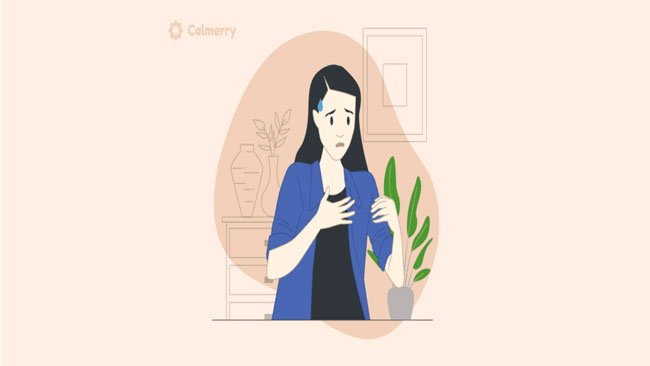Shortness of breath can be a frightening experience. You might wonder if it’s due to a medical issue like asthma, heart problems, or something as simple (yet overwhelming) as anxiety. Since anxiety can cause real physical symptoms, it’s important to understand how to tell the difference.
Table of Contents
Why Anxiety Causes Shortness of Breath
When you feel anxious, your body enters a state of “fight-or-flight” mode. This releases stress hormones like adrenaline, which:
-
Speeds up your heart rate
-
Makes your breathing faster and shallower
-
Tense your chest muscles
This combination can make you feel like you can’t get enough air — even though your lungs are working normally.
Signs Your Shortness of Breath May Be From Anxiety
You may be experiencing anxiety-related shortness of breath if you notice:
-
Sudden onset during stress or panic (rather than during rest or sleep)
-
Chest tightness without wheezing
-
Rapid heartbeat, sweating, or trembling alongside breathing issues
-
Feeling of “air hunger” despite normal oxygen levels
-
Symptoms improving when you calm down
When It Might Be Something Else
Not all breathing problems are caused by anxiety. Seek medical attention if you notice:
-
Persistent or worsening shortness of breath
-
Chest pain or pressure
-
Dizziness or fainting
-
Wheezing or persistent cough
-
Symptoms unrelated to stress
These symptoms could indicate conditions such as asthma, allergies, heart disease, or respiratory infections.
How to Manage Anxiety-Related Shortness of Breath
If anxiety is the cause, the following techniques can help:
1. Breathing Exercises
Practice slow, deep breathing by inhaling through your nose for 4 seconds, holding for 2 seconds, and exhaling through your mouth for 6 seconds.
2. Grounding Techniques
Focus on your surroundings (5 things you see, 4 things you feel, 3 things you hear…) to shift attention away from the sensation of breathlessness.
3. Lifestyle Habits
-
Regular exercise
-
Adequate sleep
-
Mindfulness meditation or yoga
-
Reducing caffeine and alcohol
4. Professional Support
If anxiety often leads to shortness of breath, consider talking with a therapist, counselor, or healthcare provider for long-term coping strategies.
FAQs
1. Can anxiety really cause shortness of breath?
Yes. Anxiety triggers your body’s stress response, which can make breathing feel shallow or restricted.
2. How long does shortness of breath from anxiety last?
It can last a few minutes to an hour, usually subsiding once the anxiety or panic episode calms down.
3. How can I quickly relieve anxiety-related shortness of breath?
Deep breathing, grounding techniques, or stepping into a calm environment can provide quick relief.
4. Should I see a doctor for shortness of breath?
Yes. If symptoms are severe, persistent, or you’re unsure of the cause, it’s always best to seek medical evaluation.
5. Can shortness of breath from anxiety happen at night?
Yes. Nighttime anxiety or panic attacks can cause sudden shortness of breath, though other sleep-related conditions should also be ruled out.
You may also like to read –
Benefits Of Slow And Deep Breathing & The Breathing Capacity Of A Person
Abdominal ( Diaphragmatic breathing ) – Thoracic breathing – Clavicular breathing

